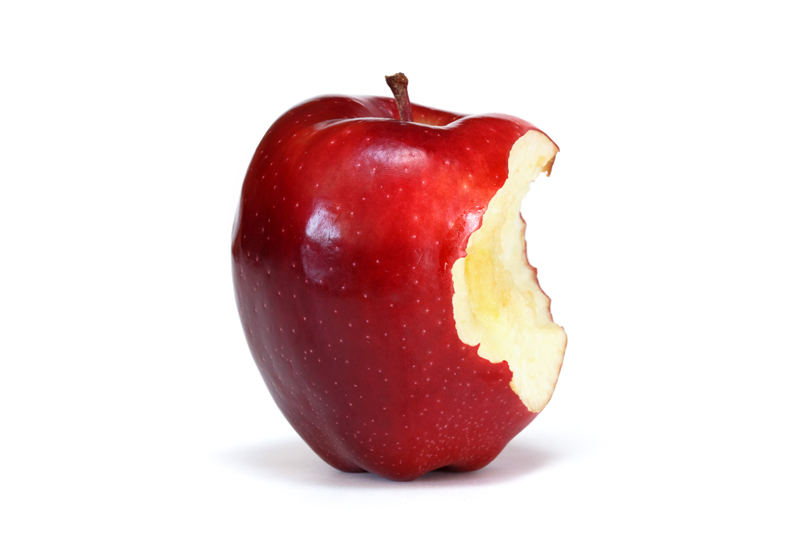Antidepression Diet By By Dr. Micheal B. Schachter

Foods to Avoid
Most of the foods included in this list should come as no surprise to you. In most cases, foods on the "Avoid" list have been highly refined and processed. Fortunately, for every food you should avoid, there is a healthy alternative on the "Positive Foods" list. You may find that the "Avoid" list reads like your current grocery list; or you may discover that only one or two categories apply to you. Next time you're in the grocery store, here are the items you want to skip:
Sugar. Avoid all foods that contain added sugar, such as soda, candy, cakes, ketchup, some breakfast cereals, and so on. Become a label reader. If sugar (or one of its companions, such as corn syrup) is one of the first few ingredients, put the item back on the shelf! Sugar can give you a burst of energy, but in the long run it can leave you depressed and tired.
White-flour products. Just say no to white bread, white pasta, and other products that use white flour, including many crackers, rolls and bagels, refrigerator biscuits, pizza dough, and baked goods. Also avoid white rice. These overly processed food products have been stripped of their nutritional value, and then they are "enriched" with some nutrients, along with synthetic additives.
Alcohol. This includes beer, wine, and liquor. People often forget that alcohol is a depressant, even though it provides an initial kick. Drinking alcohol can also disturb your sleep, which is a problem with many people who are depressed.
Caffeine. Avoid coffee, tea, colas, and chocolate. (Okay, you can have a limited amount of organic dark chocolate on occasion.) If you must have coffee, choose an organic coffee, since most coffees are high in pesticides. Decaffeinated coffee is fine for most people, provided that it is organic and does not use toxic chemicals in processing.
Hydrogenated fats. Hydrogenated fats are oils to which hydrogen atoms have been added in the factory in order to harden them and improve shelf life. These hydrogenated oils or fats contain high concentrations of trans-fatty acids, which have recently been clearly shown to disrupt fatty acid metabolism in the body and cause serious disease. Hydrogenated fats are found primarily in margarines, snack foods (potato chips, corn chips), crackers and cookies, baked products, and fast foods. When you read ingredient labels, look for the words hydrogenated, partially hydrogenated, margarine, or shortening, which indicate the presence of trans-fatty acids, or look at the nutritional panel for the percentage of trans-fat in the product. Beginning January 2006, food manufacturers were required to list trans-fat content on labels.
Chemical food additives. To avoid artificial preservatives, flavorings, colors, and sweeteners, you need to read labels. Not all labels list all the chemicals in the food item, but the general rule is: If the product has been processed, it probably contains chemicals. For example, artificial preservatives such as BHA, BHT, nitrites, monosodium glutamate, and nitrates are often seen in cereals, breads, frozen dinners, boxed meals, and crackers. All foods containing artificial colors (such as red dye 40) or artificial flavorings should be avoided. Artificial additives can cause various adverse reactions, including mood swings, depression, fatigue, headache, rash, aggression, irritability, and attention difficulties, among others. I believe all artificial sweeteners, including saccharine, aspartame, and sucralose, should be avoided. In particular, avoid diet sodas containing aspartame.
Fluoride. Do not drink fluoridated water or tap water (unless filtered) or use fluoridated toothpaste. Despite the popularity of fluoride dental treatments for both adults and children, I strongly recommend you not get them. Also, avoid fluoridated vitamins for children. There are a number of excellent books and websites that clearly document the lack of efficacy and dangers of fluoride ingestion and fluoride use. If you live in an area where the tap water is fluoridated and you want to drink the tap water but not the fluoride, you need to use a water filter with a reverse osmosis component; carbon filters will not remove fluoride.
Chloride. Do not drink chlorinated water (unless the chlorine has been filtered out), as chlorine is toxic. A simple carbon filter will remove chlorine from tap water.
From the book WHAT YOUR DOCTOR MAY NOT TELL YOU ABOUT DEPRESSION: Basics of a Healthful, Antidepression Diet (Foods to Avoid)
Copyright (c) 2006 by Michael B. Schachter, MD, and Lynn Sonberg. Reprinted by permission of Warner Books, Inc, New York, NY. All rights reserved.
About The Author:
Michael B. Schachter, MD, is a magna cum laude graduate of Columbia College, and received his medical degree from Columbia's Physicians & Surgeons in 1965. He is board certified in psychiatry and has achieved advanced proficiency in chelation therapy from the American College for Advancement in Medicine (ACAM). Dr. Schachter has been involved with alternative and complementary medicine since 1974. He is a recognized leader in orthomolecular psychiatry, nutritional medicine, chelation therapy for cardiovascular disease, and alternative cancer therapies. Coauthor of Food, Mind and Mood (1989, 1987) and author of The Natural Way to a Healthy Prostate (Keats, 1995), Dr. Schachter was a major contributor to Alternative Medicine's Definitive Guide to Cancer (Future Medicine, 1997). He was president of the American College for Advancement in Medicine from 1989-91 and is the past president of the Foundation for the Advancement of Innovative Medicine (FAIM). A frequent lecturer to both professionals and the public, Dr. Schachter is often a guest on radio and television, speaking about health and related topics.
Most of the foods included in this list should come as no surprise to you. In most cases, foods on the "Avoid" list have been highly refined and processed. Fortunately, for every food you should avoid, there is a healthy alternative on the "Positive Foods" list. You may find that the "Avoid" list reads like your current grocery list; or you may discover that only one or two categories apply to you. Next time you're in the grocery store, here are the items you want to skip:
Sugar. Avoid all foods that contain added sugar, such as soda, candy, cakes, ketchup, some breakfast cereals, and so on. Become a label reader. If sugar (or one of its companions, such as corn syrup) is one of the first few ingredients, put the item back on the shelf! Sugar can give you a burst of energy, but in the long run it can leave you depressed and tired.
White-flour products. Just say no to white bread, white pasta, and other products that use white flour, including many crackers, rolls and bagels, refrigerator biscuits, pizza dough, and baked goods. Also avoid white rice. These overly processed food products have been stripped of their nutritional value, and then they are "enriched" with some nutrients, along with synthetic additives.
Alcohol. This includes beer, wine, and liquor. People often forget that alcohol is a depressant, even though it provides an initial kick. Drinking alcohol can also disturb your sleep, which is a problem with many people who are depressed.
Caffeine. Avoid coffee, tea, colas, and chocolate. (Okay, you can have a limited amount of organic dark chocolate on occasion.) If you must have coffee, choose an organic coffee, since most coffees are high in pesticides. Decaffeinated coffee is fine for most people, provided that it is organic and does not use toxic chemicals in processing.
Hydrogenated fats. Hydrogenated fats are oils to which hydrogen atoms have been added in the factory in order to harden them and improve shelf life. These hydrogenated oils or fats contain high concentrations of trans-fatty acids, which have recently been clearly shown to disrupt fatty acid metabolism in the body and cause serious disease. Hydrogenated fats are found primarily in margarines, snack foods (potato chips, corn chips), crackers and cookies, baked products, and fast foods. When you read ingredient labels, look for the words hydrogenated, partially hydrogenated, margarine, or shortening, which indicate the presence of trans-fatty acids, or look at the nutritional panel for the percentage of trans-fat in the product. Beginning January 2006, food manufacturers were required to list trans-fat content on labels.
Chemical food additives. To avoid artificial preservatives, flavorings, colors, and sweeteners, you need to read labels. Not all labels list all the chemicals in the food item, but the general rule is: If the product has been processed, it probably contains chemicals. For example, artificial preservatives such as BHA, BHT, nitrites, monosodium glutamate, and nitrates are often seen in cereals, breads, frozen dinners, boxed meals, and crackers. All foods containing artificial colors (such as red dye 40) or artificial flavorings should be avoided. Artificial additives can cause various adverse reactions, including mood swings, depression, fatigue, headache, rash, aggression, irritability, and attention difficulties, among others. I believe all artificial sweeteners, including saccharine, aspartame, and sucralose, should be avoided. In particular, avoid diet sodas containing aspartame.
Fluoride. Do not drink fluoridated water or tap water (unless filtered) or use fluoridated toothpaste. Despite the popularity of fluoride dental treatments for both adults and children, I strongly recommend you not get them. Also, avoid fluoridated vitamins for children. There are a number of excellent books and websites that clearly document the lack of efficacy and dangers of fluoride ingestion and fluoride use. If you live in an area where the tap water is fluoridated and you want to drink the tap water but not the fluoride, you need to use a water filter with a reverse osmosis component; carbon filters will not remove fluoride.
Chloride. Do not drink chlorinated water (unless the chlorine has been filtered out), as chlorine is toxic. A simple carbon filter will remove chlorine from tap water.
From the book WHAT YOUR DOCTOR MAY NOT TELL YOU ABOUT DEPRESSION: Basics of a Healthful, Antidepression Diet (Foods to Avoid)
Copyright (c) 2006 by Michael B. Schachter, MD, and Lynn Sonberg. Reprinted by permission of Warner Books, Inc, New York, NY. All rights reserved.
About The Author:
Michael B. Schachter, MD, is a magna cum laude graduate of Columbia College, and received his medical degree from Columbia's Physicians & Surgeons in 1965. He is board certified in psychiatry and has achieved advanced proficiency in chelation therapy from the American College for Advancement in Medicine (ACAM). Dr. Schachter has been involved with alternative and complementary medicine since 1974. He is a recognized leader in orthomolecular psychiatry, nutritional medicine, chelation therapy for cardiovascular disease, and alternative cancer therapies. Coauthor of Food, Mind and Mood (1989, 1987) and author of The Natural Way to a Healthy Prostate (Keats, 1995), Dr. Schachter was a major contributor to Alternative Medicine's Definitive Guide to Cancer (Future Medicine, 1997). He was president of the American College for Advancement in Medicine from 1989-91 and is the past president of the Foundation for the Advancement of Innovative Medicine (FAIM). A frequent lecturer to both professionals and the public, Dr. Schachter is often a guest on radio and television, speaking about health and related topics.
You Should Also Read:
What Your Doctor May Not Tell You About Depression- Book By Dr. Micheal B. Schachter
Basics of a Healthful, Antidepression Diet - Positive Foods

Related Articles
Editor's Picks Articles
Top Ten Articles
Previous Features
Site Map
Content copyright © 2023 by Victoria Abreo. All rights reserved.
This content was written by Victoria Abreo. If you wish to use this content in any manner, you need written permission. Contact Victoria Abreo for details.



